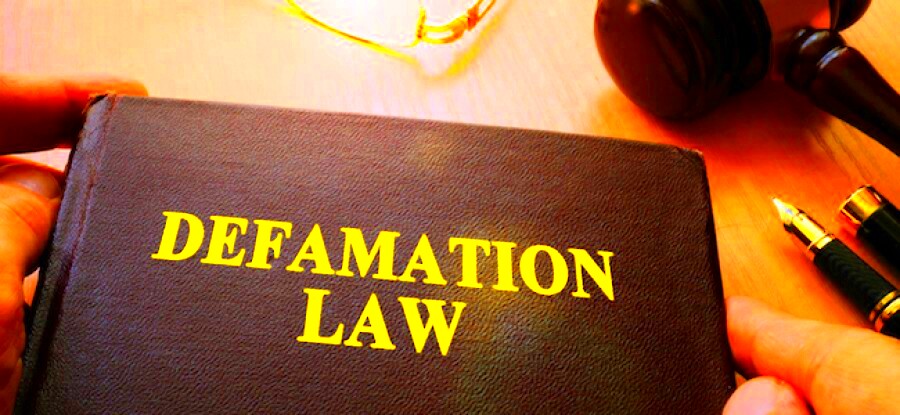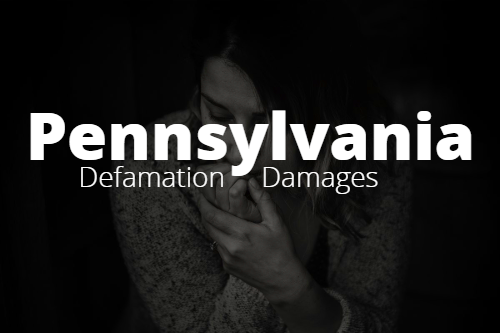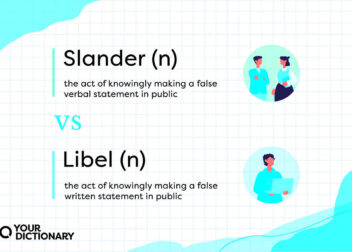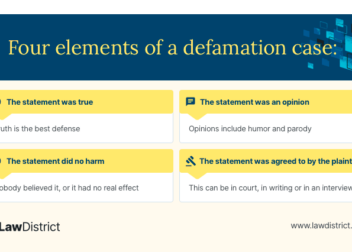PA Defamation Law: Legal Protections and Risks
Defamation is a legal term that refers to false statements made about a person that damage their reputation. In Pennsylvania, defamation laws are designed to protect individuals from untrue claims that can harm their personal or professional lives. Understanding the nuances of these laws is crucial for anyone who might find themselves involved in a defamation case, either as the plaintiff or the defendant.
In Pennsylvania, defamation can occur in two forms: libel and slander. Libel refers to written statements, while slander pertains to spoken statements. Both forms can lead to legal action if the statements made are false and damaging.
Elements of a Defamation Claim

To prove a defamation claim in Pennsylvania, certain elements must be established:
- False Statement: The statement made must be untrue.
- Publication: The statement must be shared with someone other than the person being defamed.
- Fault: The plaintiff must show that the defendant acted with at least negligence, meaning they failed to exercise reasonable care in determining the truth of the statement.
- Harm: The plaintiff must demonstrate that the false statement caused harm to their reputation.
If these elements are met, a defamation claim can proceed in court. Understanding these components helps individuals navigate potential claims or defenses effectively.
Defenses Against Defamation Claims
Defendants in defamation cases have several defenses they can raise to avoid liability:
- Truth: If the statement is true, it is an absolute defense against defamation.
- Opinion: Statements that are clearly opinions and not assertions of fact may not be considered defamatory.
- Privilege: Certain communications, such as those made in a court of law or during legislative sessions, may be protected.
- Consent: If the plaintiff consented to the statement being made, they may not pursue a claim.
Each case is unique, so it’s essential to consult with a legal professional to evaluate the specific defenses available in any given situation.
Potential Legal Protections for Defendants
When facing a defamation claim, defendants in Pennsylvania have several legal protections at their disposal. These protections are essential to ensure that individuals can express themselves freely without the constant fear of being sued for defamation. Understanding these potential defenses can be crucial in navigating a defamation case.
Some of the key legal protections for defendants include:
- Truth as a Defense: The most powerful defense against defamation is proving that the statement made was true. If a defendant can demonstrate the truthfulness of their statement, they will likely avoid liability.
- Opinion Defense: If the statement is clearly presented as an opinion rather than a fact, it may not be actionable as defamation. Courts typically protect expressions of opinion under the First Amendment.
- Privilege: Certain communications are protected by privilege, meaning they cannot be used as the basis for a defamation claim. This includes statements made in legal proceedings or legislative debates.
- Public Interest: If the statement concerns a matter of public interest, defendants may have a stronger defense, particularly if they can show that they acted without actual malice.
These defenses help maintain a balance between protecting individual reputations and safeguarding the freedom of speech.
Risks of Defamation Claims
While defamation claims serve to protect reputations, they also come with risks that both plaintiffs and defendants should consider. Understanding these risks can help individuals navigate the legal landscape more effectively.
Some of the main risks associated with defamation claims include:
- Financial Costs: Legal battles over defamation can be expensive. Plaintiffs may face substantial costs in pursuing a claim, while defendants may incur significant legal fees defending themselves.
- Time-Consuming Process: Defamation cases can take a long time to resolve, leading to prolonged stress and uncertainty for all parties involved.
- Damage to Reputation: Being involved in a defamation lawsuit can itself harm a person’s reputation, even if the claims are ultimately dismissed.
- Emotional Toll: The process of litigation can be emotionally draining, affecting relationships and mental well-being.
Being aware of these risks can help individuals make informed decisions about whether to pursue or defend against a defamation claim.
Impact of Social Media on Defamation
Social media has dramatically changed the way information is shared and consumed, leading to new challenges and implications for defamation law. The speed and reach of social media platforms can amplify the effects of potentially defamatory statements.
Here are some key impacts of social media on defamation:
- Rapid Spread of Information: Statements can go viral in a matter of hours, making it easier for false information to circulate widely.
- Increased Anonymity: Users often hide behind pseudonyms, complicating the identification of individuals responsible for defamatory statements.
- New Legal Challenges: Courts are still determining how existing defamation laws apply to social media, leading to a lack of clarity and consistency in rulings.
- Potential for Greater Harm: The broader audience on social media can lead to more significant reputational harm, making defamation claims more appealing to potential plaintiffs.
In this digital age, both individuals and organizations must be cautious about what they post online to mitigate the risks associated with defamation.
Role of Intent in Defamation Cases
Intent plays a crucial role in defamation cases in Pennsylvania. It can significantly influence whether a statement is deemed defamatory and whether the defendant can be held liable. Understanding the nuances of intent can help both plaintiffs and defendants navigate the complexities of defamation law.
In defamation law, there are generally two types of intent that courts consider:
- Negligence: This refers to a failure to exercise reasonable care when making a statement. If a defendant did not take the necessary steps to verify the truth of their statement, they may be considered negligent.
- Actual Malice: In cases involving public figures, plaintiffs must demonstrate that the defendant acted with actual malice. This means the defendant knew the statement was false or acted with reckless disregard for the truth. Proving actual malice can be challenging, as it requires a higher standard of proof.
Intent is essential because it can determine the level of damages awarded to the plaintiff. If actual malice is proven, the plaintiff may receive higher damages compared to cases based solely on negligence. Understanding the role of intent helps clarify the responsibilities of individuals when expressing opinions or sharing information.
FAQs about PA Defamation Law
Defamation law can be complex, and many individuals have questions about its intricacies in Pennsylvania. Here are some frequently asked questions to provide clarity:
- What constitutes defamation in Pennsylvania?
- Defamation in Pennsylvania is defined as a false statement that injures a person’s reputation. It can be in written (libel) or spoken (slander) form.
- How long do I have to file a defamation lawsuit?
- In Pennsylvania, the statute of limitations for defamation claims is generally one year from the date of publication of the statement.
- Can public figures sue for defamation?
- Yes, public figures can sue for defamation. However, they must prove actual malice to succeed in their claims.
- What damages can be awarded in a defamation case?
- Damages can include actual damages (for lost income or reputation), presumed damages (based on the nature of the defamation), and punitive damages (to punish the defendant).
Understanding these FAQs can help individuals better navigate the landscape of defamation law in Pennsylvania.
Conclusion
Defamation law in Pennsylvania is designed to protect individuals’ reputations while balancing the right to free speech. Whether you’re a potential plaintiff or defendant, understanding the various elements of defamation claims, defenses, and the role of intent is crucial. With the rise of social media, the impact of statements has become even more significant, emphasizing the importance of responsible communication.
Staying informed about your rights and responsibilities under defamation law can help you navigate potential claims effectively. If you find yourself in a defamation dispute, consulting with a qualified attorney can provide valuable guidance and support to ensure that your interests are protected.


